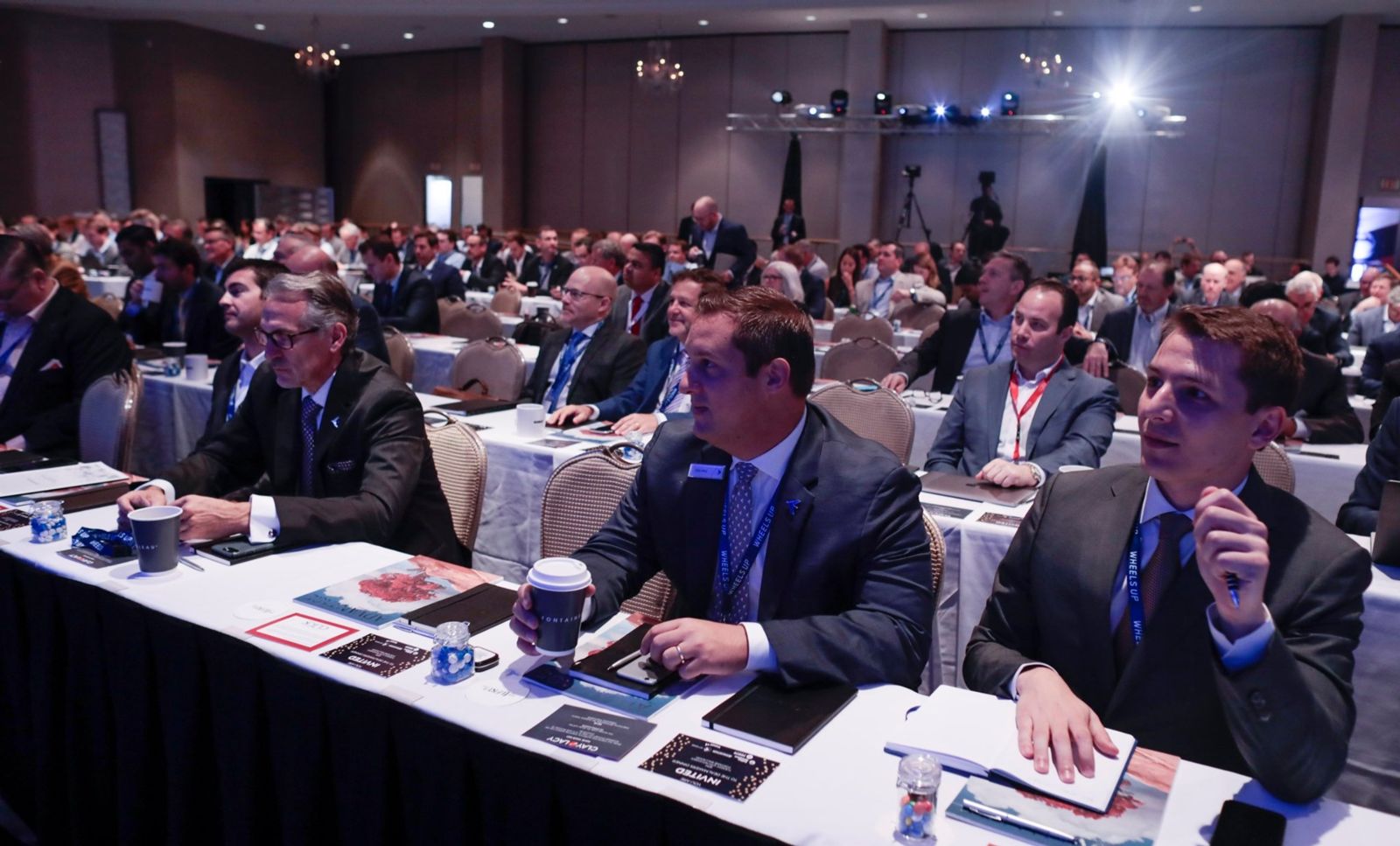December 3, 2025
On Pointe Podcast: Helping Family Offices Make Smart Aviation Decisions
Read More
November 15, 2019

By Mike Stones, Corporate Jet Investor/
CJI Miami 2019
Gus Faucher: “We are seeing the longest economic expansion in US history.”
A sunny outlook for the US economy until at least mid-2020, was predicted by Gus Faucher, chief economist with PNC Financial Services Group, during his keynote session at the CJI Miami 2019 conference in Florida.
Dispelling fears of an imminent recession in the US economy, Faucher based his optimism on the continuing economic strength of consumers, who will power increased short-term spending. Unemployment is at a 50-year low with the economy experiencing solid jobs and wage growth, with inflation running at 1.5% a year.
The unemployment rate fell to 3.5% in September, from 3.7% in the three previous months; its lowest rate since December 1969.
“Looking at the US economy, I feel pretty optimistic,” said Faucher. “We are seeing the longest economic expansion in US history. And expansion will continue to at least mid-2020, if not beyond.”
‘Longest economic expansion in US history’
The biggest threats to the economy originated outside US borders, he said. Foremost among those threats were the impact of the continuing trade war with China and the ripple effect on European growth from a hard Brexit, if the UK were to leave the EU without a trade deal.
“The stock market is definitely unhappy with the recent round of tariffs [on imported Chinese products] and China’s response.” While there was talk of a so-called Phase 1 deal to resolve the trade dispute, its economic impact on the US economy was likely to be long-lasting.
“Even if we get a Phase 1 deal, the issues between the US and China will persist for a year to 18 months. So, business investment is likely to remain soft in the near term and there will be less stimulus from the Federal Government, which will not have the same positive effect as it did in 2018 and 2019.”
Last month, president Trump revealed the US government would not raise tariffs on $250bn of Chinese goods imports by five percentage points, mid-month, as previously scheduled. A further round of tariff increases on Chinese exports to the US is planned for December 15. But China was less important to US business than it was 15 years ago and economic growth in the Asian powerhouse economy is slowing, he noted.
Slow economic growth was not confined to China. “We are seeing economic softness in Europe connected to Brexit. Every time I look at Brexit and then at the US, I think things could be worse.”
A hard Brexit would be “a disaster” for the UK economy and its impact would be felt through Europe and beyond. The German economy is already on the brink of recession, he said.
‘Real GDP growth will soften’
“In the US, real GDP [gross domestic product] growth will soften to around 1.6% on a year-over-year basis in the middle of 2020, due to slower global growth, the trade war, and a fading boost from the 2018 tax cuts.
Faucher acknowledged that the possible impeachment of President Trump was “a nearside downturn risk”.
While climate change would not have much of an affect on the US economy in the short term, ultimately it could have far-reaching consequences. “In the longer term, more-extreme weather will have an impact on the economy – both directly and through extra legislation [to mitigate its effects]. So, climate change was a significant risk to the economy.”
Summarising his state of the economic nation address, Faucher said: “No US recession in the near term coupled with growth in the US economy due to consumer spending.”
Meanwhile, Andrew Collins, Sentient Jet President and CEO, shared Faucher’s confidence in the prospects for the US economy over the next seven months or so. “Looking to the first half of 2020, it feels like growth is there,” said Collins. “I feel pretty good for the first six months of the year. But after that, I wouldn’t place a bet.”
Donald Dwyer, managing partner with aircraft broker and consultant Guardian Jet, said the business prospects for next year were much harder to predict than this year. “2020 would be much harder to call than 2019,” said Dwyer. “The first quarter of this year was the slowest I can remember for a long time. Then, from the second quarter, things really took off and this is proving to be our busiest year ever.”
Faucher’s presentation, ‘The state of the nation – which way now?’ was delivered at the Fontainebleau Hotel in Miami Beach on Tuesday November 12th.